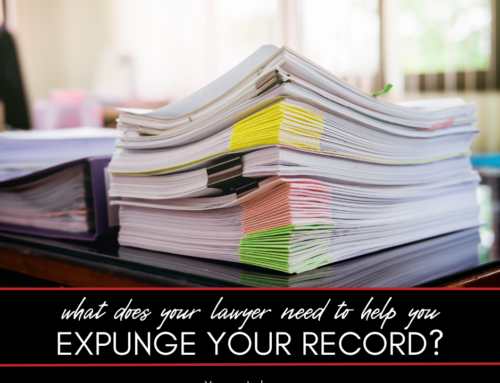Navigating child custody battles can be challenging, especially if you have a criminal record. Understanding how expungement might influence these proceedings is crucial. This guide aims to provide clear, straightforward information about the intersection of expungement and child custody battles in Indiana — and if you’re considering hiring an expungement lawyer, it’s for you.
Expungement and Child Custody Battles: What You Need to Know
In this guide, you’ll find insights into:
- The Role of Criminal Records in Child Custody Cases
- Expungement in Indiana: Basics and Differences from Sealing
- How Expungement Can Impact Child Custody Battles
- The Expungement Process: Steps and Considerations
- Preparing for a Child Custody Case Post-Expungement
Here’s a closer look at each.
The Role of Criminal Records in Child Custody Cases
Your criminal record can significantly impact child custody decisions. Courts prioritize the child’s best interests, and a criminal history might raise concerns about a safe and stable environment. Understanding how your record could influence the court’s decision is the first step in addressing potential challenges.
Related: How does criminal record expungement give you a fresh start?
Expungement in Indiana: Basics and Differences from Sealing
Expungement in Indiana involves the legal process of erasing or sealing your criminal record. It’s important to understand that expungement and sealing are distinct processes.
How Expungement Can Impact Child Custody Battles
Expungement may influence your child custody case. It may help alleviate concerns about your suitability for child custody. The specifics of your case and the nature of your conviction play significant roles.
Related: Do all crimes qualify for expungement in Indiana?
The Expungement Process: Steps and Considerations
Navigating the expungement process involves several steps, from determining eligibility to filing the necessary paperwork. Understanding this process helps you prepare effectively, ensuring that all requirements are met for a successful expungement application.
- Determine Your Eligibility
The first step is to figure out if you’re eligible for expungement. In Indiana, eligibility depends on several factors, including the type of crime, the time that has passed since the conviction, and your criminal history. Generally, you’re eligible if you have certain types of convictions (like misdemeanors or non-violent felonies) and if a specific period (usually five to ten years) has passed without further convictions. However, some crimes may not be eligible for expungement.
- Gather Necessary Documentation
Once you determine your eligibility, the next step is to gather all the necessary documents. This typically includes your criminal record, court documents related to your conviction, and any other relevant legal paperwork. You can obtain your criminal record from the Indiana State Police or local law enforcement agencies. It’s crucial to have complete and accurate records, as missing or incorrect information can delay the process.
- Complete and File the Expungement Application
Indiana requires a specific application for expungement. This application asks for detailed information about your conviction, your personal details, and your reasons for seeking expungement. It’s important to fill out this application accurately and thoroughly. Any mistakes or omissions can lead to your application being denied.
Note that you can avoid this part of the process — and the rest of it — by working with an attorney to file your expungement petition.
After completing the application, you must file it with the appropriate court. There might be a filing fee. If you can’t afford the fee, you may be able to apply for a fee waiver.
Related: Indiana expungement FAQ
- Attend a Hearing (If Required)
In some cases, the court may require a hearing before deciding on your expungement application. During this hearing, you might need to present your case and explain why you believe your record should be expunged. It’s an opportunity to show how you’ve changed since your conviction and how a clean record could positively impact your life.
- Wait for the Court’s Decision
After filing your application and completing all necessary steps, the court will review your case and make a decision. The time it takes to get a decision can vary. If the court approves your application, your record will be expunged, meaning it will be sealed from public view and you can legally state that you were not convicted of that crime.
Considerations
- Legal Assistance: Consider consulting with a lawyer who specializes in expungement. They can guide you through the process, ensure your paperwork is in order, and represent you in court if needed.
- Accuracy and Honesty: Be accurate and honest in your application. Misrepresentations can lead to your application being denied.
- Patience: The expungement process can take time, so patience is important. Remember, this process is about giving you a fresh start and can be worth the effort.
By understanding and carefully following these steps, you can navigate the expungement process more effectively. Remember, expungement can offer a new beginning, opening doors that a criminal record might have closed.
FAQ About Expungement and Child Custody Battles
Check out these commonly asked questions about expungement and child custody battles. If you don’t see the answers here, please call our office and we’ll provide the information you need.
How Does a Criminal Record Affect Child Custody Decisions?
A criminal record can impact the court’s assessment of your ability to provide a safe and stable environment for your child. The nature and severity of the offense, along with your current circumstances, are key factors in the court’s decision.
Can Expungement Completely Remove My Criminal Record from Custody Proceedings?
While expungement can remove or seal your criminal record, the specifics of how this affects custody proceedings depend on the details of your case and the type of expungement granted.
Related: Indiana expungement information
What Types of Criminal Records Are Eligible for Expungement in Indiana?
Eligibility for expungement in Indiana varies based on the offense. Generally, non-violent offenses and certain misdemeanors and felonies can be expunged, subject to specific criteria.
How Long Does the Expungement Process Take?
The duration of the expungement process in Indiana can vary, typically taking several months. The timeline depends on the complexity of your case and the court’s schedule.
Will Expungement Guarantee a Favorable Outcome in My Custody Case?
While expungement can improve your standing in a custody battle, it does not guarantee a favorable outcome. The court considers various factors, including the best interests of the child.
Navigating the complexities of child custody battles with a criminal record can be challenging, but understanding how expungement works in Indiana can provide a clearer path forward. This guide aims to equip you with the knowledge needed to approach your situation with confidence and clarity. Remember, every step you take toward expungement can be a step toward a better future for you and your child.
Do You Need to Talk to an Indiana Expungement and Sealing Attorney?
If you’re ready for a fresh start, we may be able to help. Call us at 317-647-5476 or fill out the form below for a free consultation on expungement. We’re here to answer your questions and get you the fresh start you deserve.














